Menu
Renishaw has long-since established themselves as a market leader in precision measuring equipment. Building on this excellent reputation, Renishaw grew the company by expanding their product range – purchasing a business that was an innovator in metal additive manufacturing systems (metal 3D printing).
3D printing is a rapidly growing market and has undoubtedly changed the way we think about manufacturing. It enables the manufacture of robust parts in short runs or rapid prototyping and fast iterative design without the limitations of traditional manufacturing techniques.
Renishaw was already a user of AM technology for the manufacture of dental restorations and prototypes for its precision products. This experience provided both an understanding of the status of the technology and an insight into its potential. The company therefore decided to acquire metal additive manufacturing technology and started to sell its systems and expertise to clients.
Reflecting widespread general interest in 3D printing, machine makers started to take additive manufacturing seriously and because of this, the market was maturing quickly. 3D printing rapidly moved from development and academia to production environments. Competition heated up, volumes increased and Renishaw’s competitors started to improve the aesthetic appearance of their products.
Being a reasonable capital investment, additive manufacturing systems were being installed into the world’s most high-tech manufacturing environments. Typically, aerospace and automotive manufacturers were early adopters – installing 3D printers into their manufacturing facilities and starting validation early to ensure products were entirely safe before use.
Renishaw required a technology cabinet that looked every bit as valuable as the equipment it contained. They needed a branded style that could be replicated across their entire range – making their products identifiable in the marketplace and reaffirming their position as market leader.
Starting with Renishaw’s AM250, an existing product already in the market, Amcanu were engaged to manufacture a ‘wrap’ to attach to the frame that supports the equipment. Not only important to improve aesthetics, but also to prevent access to the inner-workings of the equipment while in operation – acting as a guard and satisfying health and safety regulation for the production market.
“So many suppliers overstate their ability, which ends up costing more in development later, but not Amcanu. Always happy to try new ideas on the factory floor to ensure they’ll work in practice. Amcanu have been a safety net – vetting our designs for manufacturing feasibility, feeding back and making changes ahead of production. The experience of their team has helped us get more things right first time.”
Jack Dunkley
Mechanical Design Engineer,
Renishaw
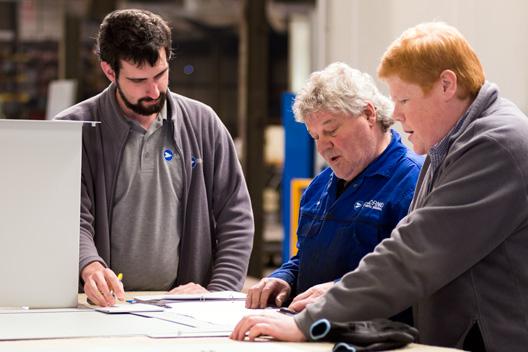
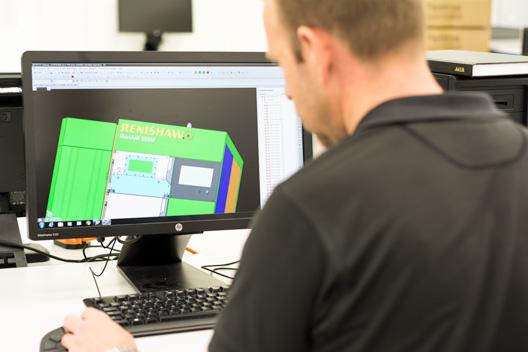
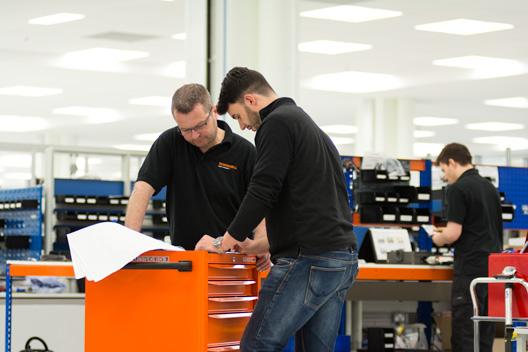
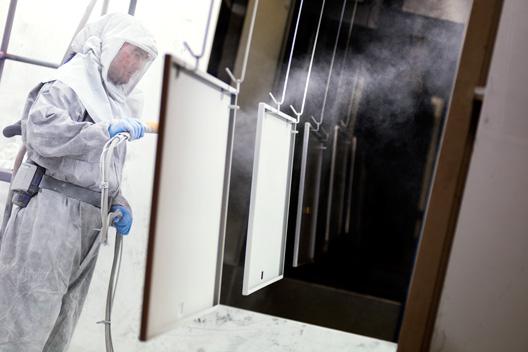
Amcanu worked with Renishaw and Renishaw’s design contractor to modify the cabinet and improve the design for manufacture. The specialist sheet-metal experience of Amcanu’s design and manufacturing teams helped Renishaw adapt their designs and adopt a more modular style – making the cabinets stronger and easier to build, construct, repair...
Being installed into high-tech environments, attention-to-detail was critical – particular attention was paid to the paint finish. Amcanu was responsible for the ‘wrap’, but components were also being manufactured by other suppliers. Renishaw needed a robust paint finish that was easily replicated by other suppliers – ensuring the finish was consistent across the board.
While the paint finish was in development, Amcanu designed a stillage platform to deliver new wraps as full cabinets, making it easier for quality assurance to sign off deliveries and helping Renishaw’s technical team start production immediately.
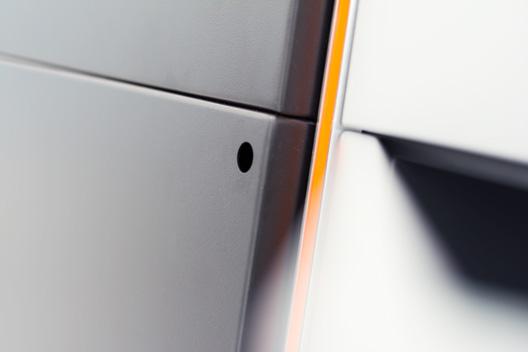
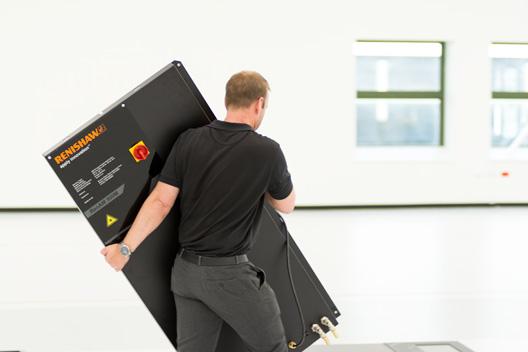
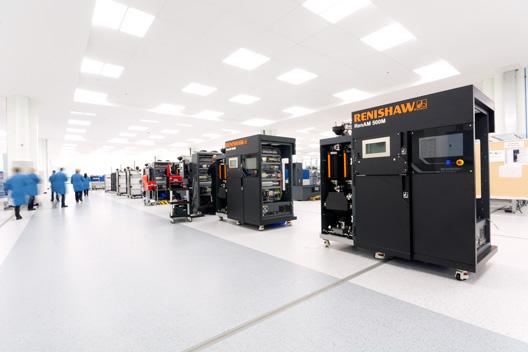
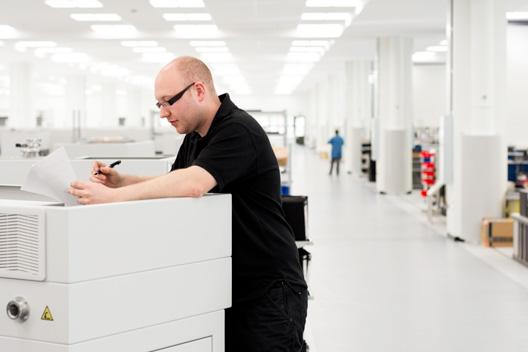
Despite the necessary design changes, the instantly recognisable branded look of Renishaw’s AM250 has been maintained. Amcanu developed a more robust and repeatable paint finish and the cabinet looks every part as impressive as the high-tech equipment it contains.
Components are now designed to be interchangeable. If parts are damaged during delivery, manufacture or in the field, Renishaw are able to replace panels and interchange doors without having to wait for whole replacement cabinets. An additional major benefit of the design for manufacture process – parts are now supplied within drawing tolerances. So, Renishaw no longer need to order the custom fabrication of parts or fettle spare parts to fit irregular units – helping them complete units faster and maintain production schedules.
Amcanu’s design and engineering teams are now integrated into Renishaw’s design process, with much of the learning and development from the AM250 being rolled into Renishaw’s latest product, the RenAM 500M.
“Operating in a fast-growth market can be challenging and we recognise that we’re a demanding customer – Amcanu consistently rise to a challenge and seem to thrive in a collaborative development relationship. Their part quality, consistency and response times are always good. Amcanu have helped us improve our products and are a valuable part of our supply chain.”
Adam Wright
Senior Buyer,
Renishaw

